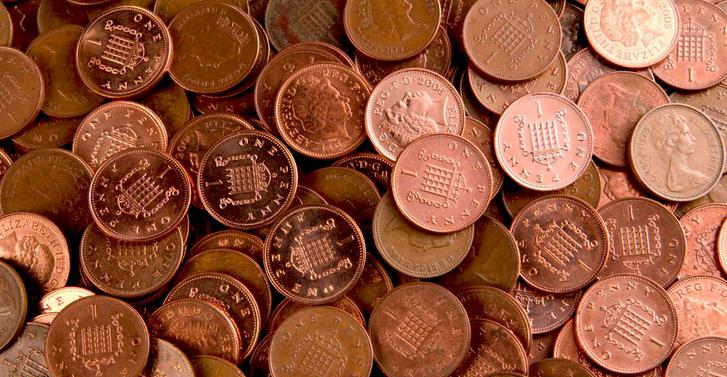
The Difference Between Type 1 & Type 2 Diabetes!
posted on: July 26, 2018. posted in: Nutrition, Fitness
Earlier this week we shared a post promoting strength training with a list of research proven benefits:
• reduced risk of diabetes
• reduced risk of osteoporosis
• reduced risk of dementia
• improved mental health
• aiding long term weight loss
• keeping you strong as you age
• reversing effects of menopause
This then sparked a discussion in the comments with a lady called Debbie who is the mother of a type 1 diabetic.
Debbie requested that we change the first benefit to "type 2 diabetes" because people often confuse the two, and after a little exchange I agreed to change it to:
• reduced risk of developing type 2 diabetes
• reduced risk of type 1 diabetes complications
• and so on...
This now provides a wonderful opportunity to educate people on the difference between type 1 and type 2 diabetes, hopefully helping to end any stigma attached to either type of diabetes.
(to any parents out there, you may want to share this with your kids or explain it to your kids in this way!)
__________
Understanding Carbohydrate.
Carbohydrate is "fuel for plants".
Our cars use petrol, and we top them up by going to the local petrol station.
Plants use carbohydrate, and they top themselves up by using the energy of the sun.
All those leaves you see on the plants and trees are like mini petrol stations, helping them create their own fuel...
Carbohydrate!
Some of that fuel, that carbohydrate, is stored as SUGAR (like the sugar you find in an apple) and some of that fuel, that carbohydrate, is stored as STARCH (like the starch you find in a potato).
Now animals and humans love eating carbohydrate!
Because just as carbohydrate is fuel for plants, if we eat those plants it can be fuel for us too!
We can enjoy carbohydrates in their natural state, like whole apples or whole bananas or whole grain rice. But we can also take those plants and make them into amazing foods like pasta, bread, cakes, sweets and biscuits, all of which then become a source of carbohydrate and a source of fuel.
Some people can eat these foods, these carbohydrates, without having to worry too much.
But some people have conditions called "type 1 diabetes" and "type 2 diabetes" that means their body has difficulty processing carbohydrate.
Here's how it works...
__________
Carbohydrate Metabolism.
When we eat carbohydrate it is digested, broken down and eventually released into our bloodstream as blood sugar.
If you imagined eating £50 notes, your body would break them down into smaller and smaller notes, then into smaller and smaller coins, eventually releasing them into your blood as tiny little 1p coins that your body can then spend as fuel.
As we eat carbohydrate and more of those 1p coins flood our bloodstream, an organ in our body called our "pancreas" releases something called "insulin".
Insulin is like a key that opens our cells to allow them to absorb all that sugar and either spend or save all those tiny 1p coins!
__________
Type 1 Diabetes.
People with type 1 diabetes have a poorly pancreas that cannot produce enough insulin.
This means that when they eat carbohydrates their blood quickly fills up with those tiny 1p coins, that blood sugar, because the cells aren't being opened and allowed to start absorbing them and spending them.
When insulin levels are too low, because their pancreas cannot produce enough insulin, you can imagine lots of tiny 1p coins piling up in their blood with nowhere to go.
Type 1 diabetics therefore have to inject themselves with insulin, which opens up the cells and stops their blood getting too flooded with all those tiny 1p coins.
Type 1 diabetes is not caused by eating too much or exercising too little. It is caused by the body's immune system attacking the pancreas and making it poorly.
__________
Type 2 Diabetes.
When people eat lots of carbohydrate, their blood keeps getting flooded with those 1p coins and their pancreas keeps having to pump out insulin to open up their cells.
Eating lots of carbohydrate is fine if you're very active or lift a lot of weights, because all those tiny 1p coins are getting burned off by the cells very quickly.
But eating lots of carbohydrate when you are inactive and don't lift lots of weights causes your cells to fill up with those tiny 1p coins, leaving no room for any more!
Your pancreas deals with this by pumping out even more insulin, which then allows your fat cells to start absorbing those tiny 1p coins, converting them to fat.
If this keeps happening...
Eating lots of carbohydrate. Not burning off that carbohydrate. So your pancreas keeps having to pump out more and more insulin, causing more and more fat gain...
There comes a point where the locks on the cells break and the cells become locked! A bit like if you keep jamming keys in a lock it might eventually break the lock and no amount of keys will open it.
This means that type 2 diabetes is more related to our eating behaviour and exercise levels (flooding our blood with tiny 1p coins), whereas type 1 diabetes is nothing to do with our eating behaviour and exercise levels.
__________
The Difference.
Type 2 diabetes can be prevented...
By eating less processed carbohydrate and exercising more.
Type 1 diabetes cannot be prevented...
It happens to people completely out of the blue, regardless of how well they eat or how much they exercise.
Both type 1 diabetes and type 2 diabetes are issues with your cells being locked and blood sugar getting too high.
But whilst type 1 diabetics have locked cells because they have too little insulin and therefore no keys, type 2 diabetics have locked cells because they have so much insulin it's broken the lock on the cell door.
__________
Let's Be Nice, It's Healthy!
Both type 1 and type 2 diabetics deserve our love, our care, our support and our understanding of their condition.
We should not stigmatise or be mean to either type 1 diabetics or type 2 diabetics, as being mean is unhealthy and unhelpful.
AND being mean can drive emotional eating, which almost always means eating more carbohydrate and flooding their blood with even more 1p coins, making their condition worse.
In fact, this is often the cause of type 2 diabetes...
People being mean which then hurts them so much emotionally that they turn to sweet, sugary carbohydrates to help them feel better, but in doing so keep flooding their blood with those tiny 1p coins.
My original post was trying to explain (very clumsily) that strength training can help both reduce the risk of developing type 2 diabetes, by helping those tiny 1p coins get burned off more quickly, as well as oiling the locks on the cells and preventing them from breaking...
And also reduce the risk of type 1 diabetes complications, by helping type 1 diabetics stay fit and strong, and lower the amount of 1p coins in their blood meaning they need to inject less insulin.
__________
The Take Home Message?
Whether you are non-diabetic, a type 1 diabetic or a type 2 diabetic, strength training is going to massively help you.
And being a rebel is massively going to help you, by helping you end any stigma around your body or medical conditions, meaning you're less likely to emotionally eat, less likely to binge on carbohydrates and less likely to flood your blood with those tiny 1p coins.
Liam
p.s. For anyone interested in learning about strength training, either to reduce the risk of type 2 diabetes or help manage their type 1 or type 2 diabetes, then join us on the Guns'n'Buns™ mission next week! Find out more here!








